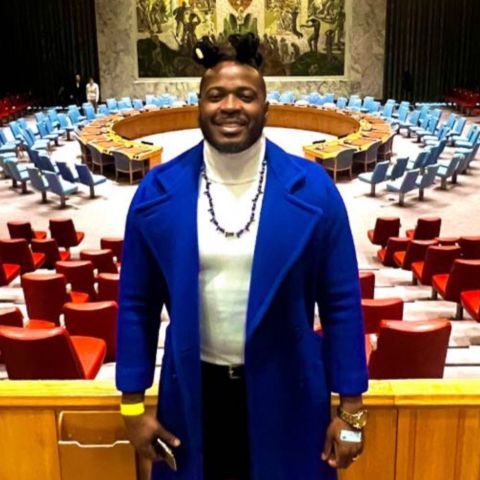Jeferson Tenorio
- BSA President

-
What is your career Goal?
As the President of the Black Student Association (BSA) at the School of International Affairs and CEO of the Black Empire Business Group, I spearhead initiatives driving international cooperation, governance, international business, and public administration. Additionally, I serve as Co-Founder and CEO of the Martin Luther King Foundation Colombia, furthering my commitment to social justice and human rights.
My highest career aspiration is to become the executive director of the A.D.King Foundation, Atlanta, GA, leveraging my expertise to promote global cooperation and address civil rights crises to facilitate international business between Colombia and the United States. I strive to strengthen international partnerships, amplify marginalized voices, and drive transformative change.Why are you inspired by BSA and diversity in international affairs?
As President of BSA, I'm passionate about fostering diversity, equity, and inclusion in global affairs. Underrepresented voices must be amplified to create effective, sustainable solutions. BSA serves as a platform for minority students to share experiences, perspectives, and expertise, ultimately enriching the School of International Affairs community.
Through my leadership, I seek to:
- Empower minority students to pursue careers in international affairs
- Foster inclusive dialogue and collaboration
- Promote cultural competency and understanding
- Develop innovative solutions addressing global challengesExpertise:
- International Business Development
- Public Administration
- Strategic Partnerships
- Human Rights Advocacy
- Governance and Policy Analysis
As a leader, I'm committed to creating a more just and equitable world. Through my roles in BSA and the private sector, I'll continue advocating for diversity, social justice, and human rights, inspiring the next generation of global leaders. I firmly believe that diverse voices are critical in international affairs. Historically, decision-making tables have lacked representation from minority communities, resulting in policies that often overlook unique needs and perspectives.
